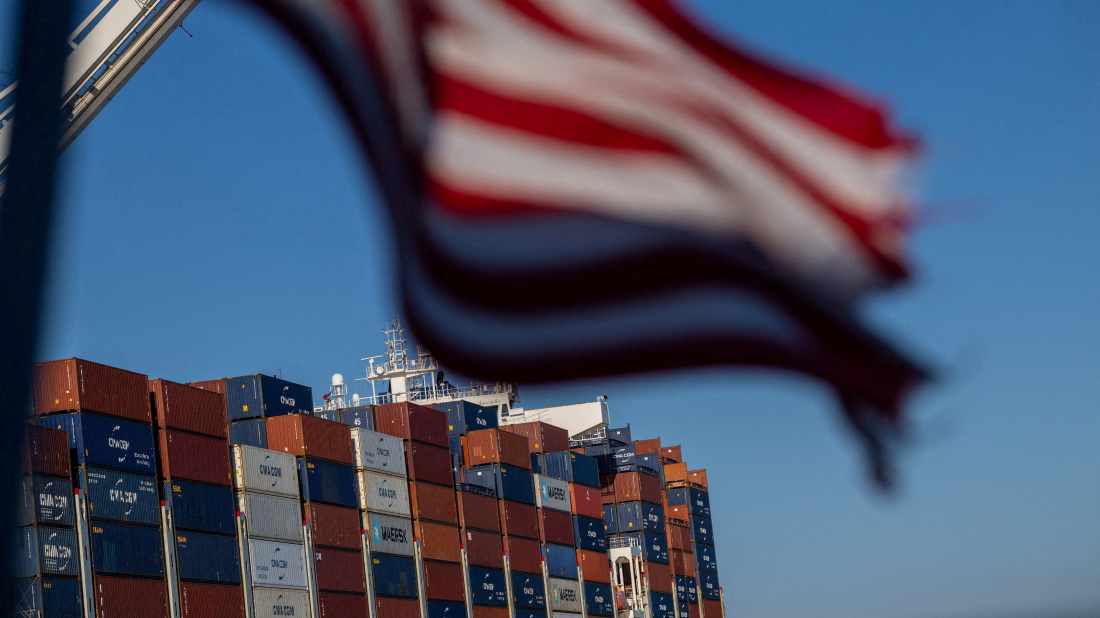Several dead and missing after Lebanon building collapse
Two adjoining residential buildings collapsed in Tripoli’s Bab al-Tabbaneh neighbourhood on Sunday, with the death toll rising to nine as search ope...

As the U.S. tariff war continues to disrupt global trade, many countries are shifting their focus away from Washington. Instead, they are strengthening regional and intercontinental ties, building new alliances, and seeking alternative trade partnerships.
Donald Trump launched his so-called “Liberation Day” tariffs with a bold promise: 90 trade deals in 90 days. It was a show of economic strength meant to draw nations to the negotiating table.
But 120 days on, just eight deals have been made, none with much detail. And rather than lining up to make new deals with the U.S., many countries are quietly moving on.
In East Asia, major export economies are joining forces. After years of stalled talks, South Korea, China, and Japan have reopened economic dialogue, working to boost trade within the region and shield themselves from U.S. tariff fallout.
At the same time, American businesses are stepping back. A recent survey by the US-China Business Council found only 48% of U.S. firms plan to invest in China this year, down from 80% in 2024, a clear sign that confidence is slipping fast.
African countries are also adapting. Rather than waiting for Western deals, governments such as Uganda’s are pushing for greater economic self-sufficiency. And some see a bigger opportunity: to finally build strong regional trade networks within the continent, trading more with neighbours and reducing reliance on outside powers.
South America is stepping into the gap too. With U.S.-China trade strained, China is looking elsewhere for key commodities, and countries such as Brazil and Argentina, major exporters of soybeans and oil, are in prime position to benefit.
Trump did manage to strike a deal with the European Union, lowering tariffs to 15% on most EU goods. It’s a modest win, helping to stabilise relations between two major economies. But Europe isn’t stopping there. The EU is actively expanding its global trade ties, holding talks with India, Indonesia, Malaysia, Thailand, and the Philippines, in a clear effort to hedge against future volatility.
Trump’s aggressive tariff strategy hasn’t sparked the wave of deals he promised. Instead, it’s accelerated a shift, with countries across Asia, Africa, South America, and Europe all looking elsewhere for growth, security, and stability. New alliances are forming. And increasingly, the U.S. isn’t part of them.
U.S. President Donald Trump has criticised American freestyle skier Hunter Hess after the athlete said he felt conflicted about representing the United States at the Winter Olympics in Italy, sparking a public clash that highlights growing political tensions surrounding the Games.
Iran would retaliate by striking U.S. military bases across the Middle East if it comes under attack by American forces, Foreign Minister Abbas Araghchi said on Saturday (7 January), stressing that such action should not be seen as targeting the countries hosting those bases.
Several avalanches struck northern Italy on Saturday, killing at least three people, as rescue officials warned the death toll could rise with unstable conditions persisting across the Alps.
A Japanese city near Mount Fuji has cancelled its annual cherry blossom festival, saying growing numbers of badly behaved tourists are disrupting daily life for residents.
U.S. skiing great Lindsey Vonn underwent surgery in an Italian hospital on Sunday after her attempt to win Olympic downhill gold ended in a violent crash just seconds into the race at the Milano Cortina Winter Games.
Double world champion Max Langenhan delivered a dominant performance to win men’s luge singles gold on Sunday (8 February), breaking the track record four consecutive times as Germany extended its grip on the sport, now winning four of the past five Olympic titles.
U.S. skiing great Lindsey Vonn underwent surgery in an Italian hospital on Sunday after her attempt to win Olympic downhill gold ended in a violent crash just seconds into the race at the Milano Cortina Winter Games.
India’s trade minister said diversifying energy imports and expanding purchases of advanced technology from the United States would serve New Delhi’s strategic interests, as the two countries move closer to finalising a long-awaited trade agreement.
U.S. President Donald Trump has criticised American freestyle skier Hunter Hess after the athlete said he felt conflicted about representing the United States at the Winter Olympics in Italy, sparking a public clash that highlights growing political tensions surrounding the Games.
Japan’s ruling coalition led by Prime Minister Sanae Takaichi has secured a sweeping victory in Sunday’s lower house election, cementing her authority and paving the way for major economic and security reforms.
You can download the AnewZ application from Play Store and the App Store.

What is your opinion on this topic?
Leave the first comment